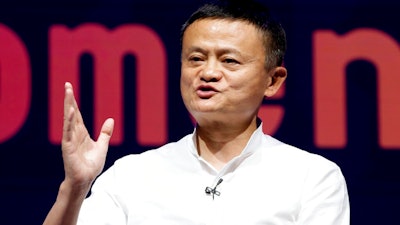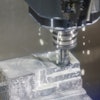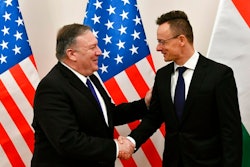
BEIJING (AP) — China's richest businesspeople got richer in 2019 despite a tariff war with Washington and an economic slowdown, a survey showed Thursday.
The average net worth of China's richest 1,800 people rose 10% over 2018 to $1.4 billion, according to the Hurun Report, which tracks the country's wealthy.
Jack Ma, who retired last month as chairman of e-commerce giant Alibaba, was No. 1 for a second year with a net worth of $39 billion. Ma Huateng of Tencent, a games and social media company, was second at $37 billion, up 8%.
The results reflect the importance of China's consumer market at a time when U.S. tariff hikes have battered export-oriented manufacturing.
The number of businesspeople on the list from the tech, pharma and food industries rose while those from manufacturing declined.
"Wealth is concentrating into the hands of those who are able to adapt to the digital economy," said Rupert Hoogewerf, the report's founder and chief researcher, in a statement.
In contrast to the United States and Europe, where the ranks of the richest people are dominated by inherited wealth, almost everyone on the Chinese list is self-made.
Hoogewerf noted that when the survey began two decades ago, mainland China had no dollar billionaires.
Real estate developer Xu Jiayin, No. 1 in 2017, dropped to third place with $30 billion.
Sun Piaoyang and Zhong Huijuan, a married couple, were No. 5 at $25 billion after their drug company, Hansoh, debuted on the Hong Kong stock exchange. Hansoh makes treatments for schizophrenia and bipolar disorder.
Pharma tycoons account for 8% of this year's list, double the share 10 years ago, according to Hurun.
The net worth of Ren Zhengfei, founder of smartphone maker Huawei Technologies Ltd., which is at the center of a struggle between Washington and Beijing over technology development, rose 24% to $3 billion. He climbed 36 places on the Hurun list to No. 162.
Huawei, which also makes network switching gear, said sales rose 23.2% over a year earlier in the first half of 2019. The company has warned, however, that it will "face difficulties" as curbs on its access to U.S. components and technology take effect.
Consumer industries benefited from an 8.4% rise in retail spending in the first half of 2019. That was despite a decline in economic growth to a 26-year low of 6.2%.
Qin Yinglin and Qian Ying, a married couple who own Muyuan Foods, a pig breeder, profited from an outbreak of African swine fever that pushed up pork prices. Their net worth tripled to $14 billion.
The list included 156 people under age 40, an increase of 24 names from last year.
Colin Huang, 39, of e-commerce company Pinduoduo, ranked No. 7 with $19 billion four years after founding his company.
"Nobody in the world has ever made that much from a standing start," said Hoogewerf.





















